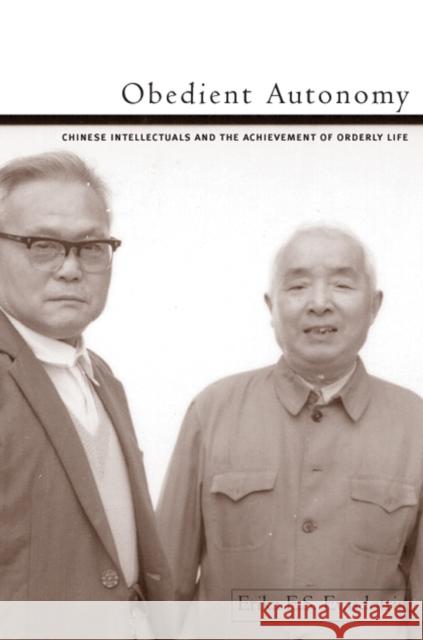Obedient Autonomy: Chinese Intellectuals and the Achievement of Orderly Life » książka
Obedient Autonomy: Chinese Intellectuals and the Achievement of Orderly Life
ISBN-13: 9780774809290 / Angielski / Twarda / 2004 / 320 str.
Obedient Autonomy: Chinese Intellectuals and the Achievement of Orderly Life
ISBN-13: 9780774809290 / Angielski / Twarda / 2004 / 320 str.
(netto: 427,30 VAT: 5%)
Najniższa cena z 30 dni: 449,54 zł
ok. 22 dni roboczych.
Darmowa dostawa!
In the west, the idea of autonomy is often associated with a sense of freedom -- a self-interested state of being, unfettered by rules or obligations to others. In this original anthropological study, Erika Evasdottir explores a type of "obedient" autonomy that thrives on setbacks, blossoms as more rules are imposed, and flourishes in adversity. Obedient Autonomy analyzes this model, and explains its precepts through examining the specialized and highly organized discipline of archaeology in China.The book follows Chinese students on their journey to becoming full-fledged archaeologists in a bureaucracy-saturated environment. Often required to travel in teams to the countryside, archaeologists are uniquely obliged to overcome divisions among themselves, between themselves and their peasant-workers, and between themselves and bureaucratic officials. This analysis reveals how these interactions provide teachers of archaeology with stories used to foster obedient autonomy in their students. Moreover, it demonstrates how this form of autonomy enables a person to order and control their future careers in what appears to be a disorderly and uncertain world.A masterly contextualization of archeology in China, Obedient Autonomy shows how the discipline has accomodated itself to a Chinese social structure, and uncovers the moral, ethical, political, and economic underpinnings of that context. It will be accessible to students of anthropology even as it will provoke Euro-American archeologists and interest social theorists of science, philosophers, gender theorists, and students of Chinese society.











